De-escalating the Russia-Ukraine Conflict
March 29 , 2022
Beijing, March 29, 2022, the Center for China and Globalization (CCG) hosted a webinar titled “De-escalating the Russia-Ukraine Conflict”, featuring insights on how to resolve the crisis in Ukraine from three regional perspectives. Guest speakers included Eleonora Tafuro Ambrosetti, Research Fellow at the Caucasus and Central Asia Centre at the Italian Institute for International Political Studies (ISPI); Jean-Christopher Bas, Founder and CEO of Connecters for Peace; Temur Umarov, Fellow at the Carnegie Moscow Center; WANG Huiyao, President of the Center for China and Globalization (CCG); and Fabian Zuleeg, CEO of the European Policy Center (EPC).
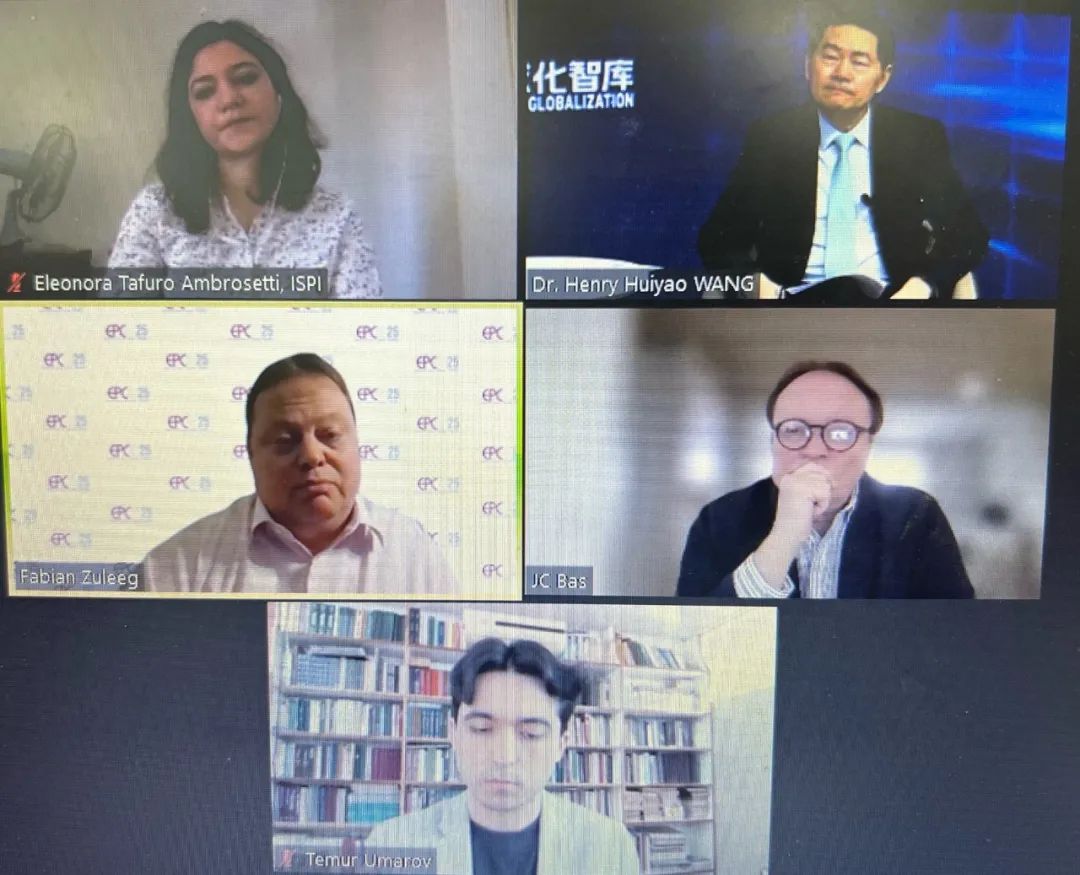
A month into the Ukraine crisis, casualties continue to mount with buildings and fields ripped apart by bombshells and millions of refugees fleeing their homes. Despite multiple attempts at peace, the situation in Ukraine remains uncertain. This webinar focused on possible diplomatic solutions to this situation, the role of China in brokering a ceasefire between Russia and Ukraine, and proposals or suggestions from think tanks in China and Europe on how to promote peace talks between Moscow and Kiev.
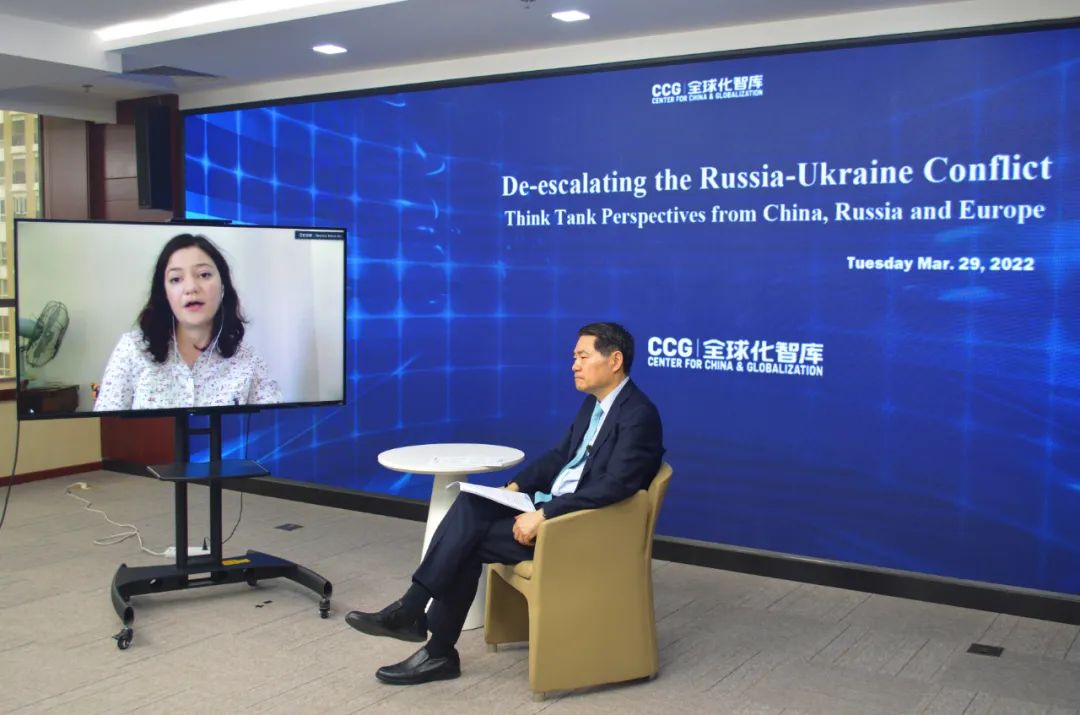
Eleonora Tafuro Ambrosetti expressed a “hopeful skepticism” on an eventual diplomatic solution to the ongoing Ukraine crisis. Her optimism came from the key role that Beijing and Ankara could play as mediators. “These countries have a more balanced approach that in the eyes of Moscow, which could make them much more credible mediators in the conflict”, she said.
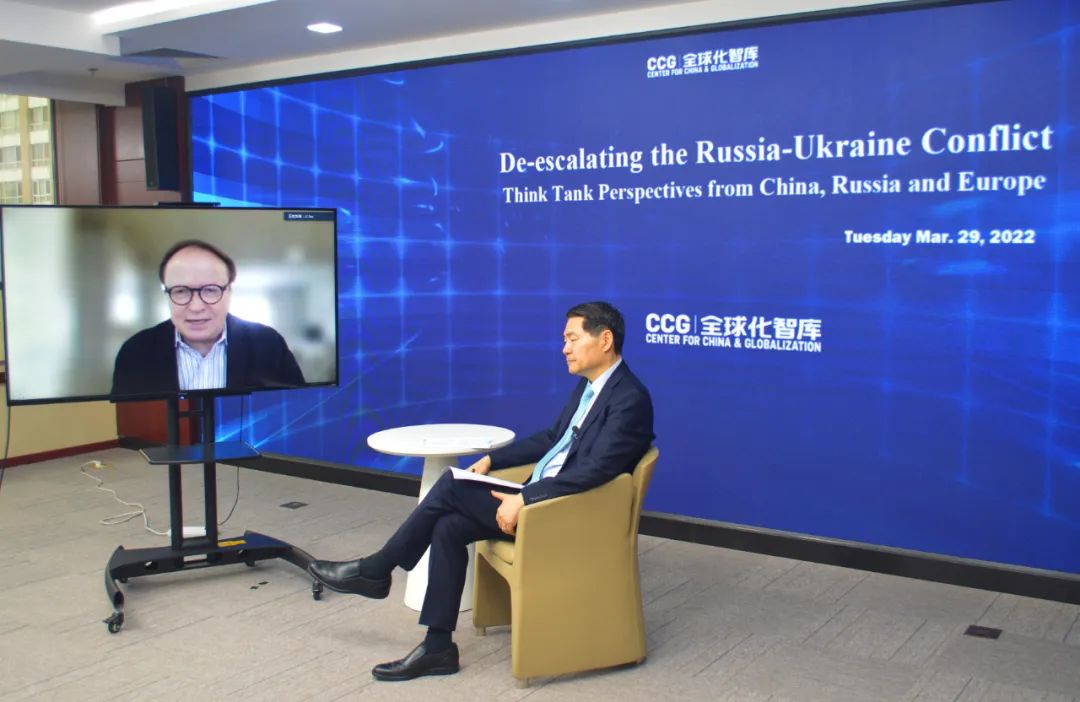
Jean-Christopher Bas commented that “we can see the situation with the bottle that is half empty or the bottle that is half full depending on where we stand.” He also emphasized the need for the old world and the emerging new world to sit at the same table and to discuss together how to maintain a stable, peaceful and prosperous world.
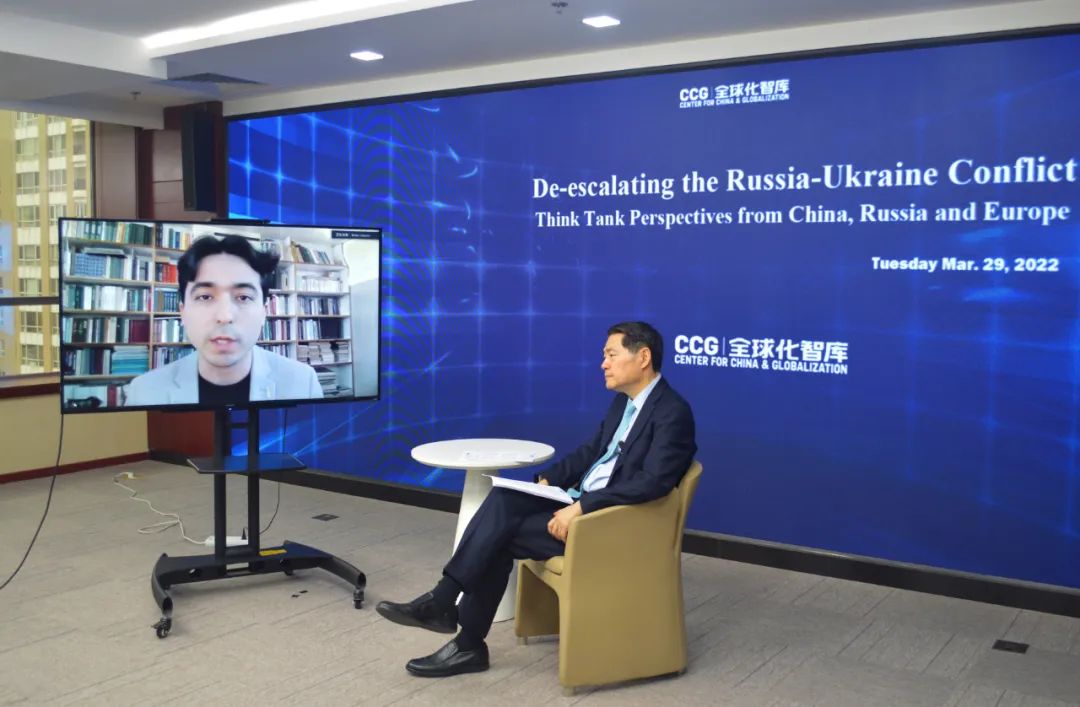
Temur Umarov assessed the current situation and ongoing negotiations with skepticism as he believes both sides are almost at a deadlock. He stated that he believes Russia would ultimately have the final word on the final outcome of this conflict, suggesting that experts could really learn something from this conflict in their work to defend global peace and stability in the long run.

From a European perspective, Fabian Zuleeg emphasized the fact that this is a watershed moment in European history and will have a profound impact on European Union policy. “We will end up having [to take] a new look at all policies across the whole range, not just foreign policy and security policy, but also policy related to energy, refugee migration, agriculture, industrial and economic governance at fiscal policy.”
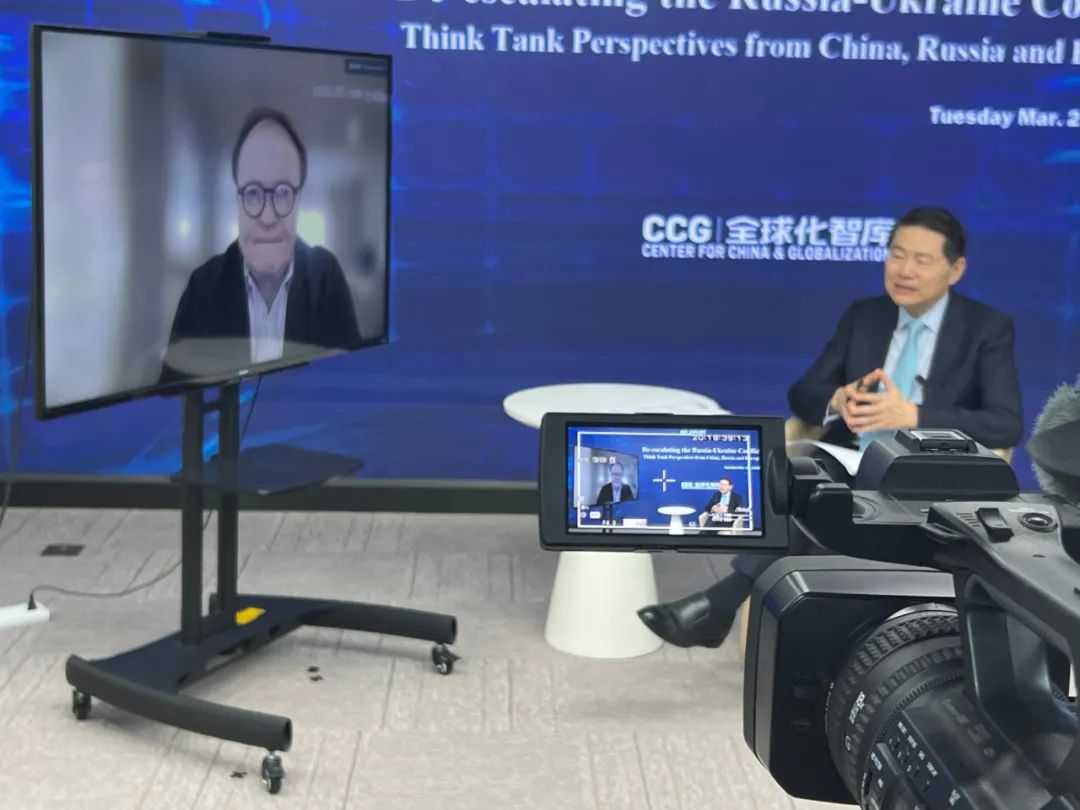
Dr. WANG Huiyao reasserted China’s basic position that international economic cooperation, instead of military alliances, is the key to global prosperity and the prevention of war. “All those economic alliances probably reflect the future of global governance. If we can get together more, we can prevent future wars.” He also emphasized that China and the US, as the world’s two greatest powers, should work harder together to promote the peace talks and end the war.






